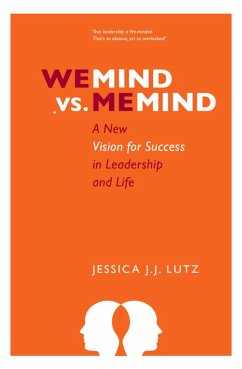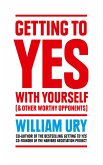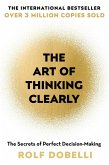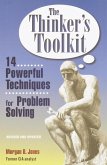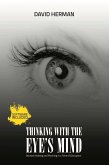Could this book be the magic wand that enables you to play to your authentic strengths, erasing insecurities, and making you feel successful and accomplished? The approach that at last reduces burnout in the workplace? A new definition of success that can really attract and retain a diverse mix of top talent?
Former international news correspondent Jessica J.J. Lutz promises such transformations as she shares what she has learned from two decades reporting in the Near East, her own journey out of burnout and from her subsequent coaching of high-performers to have more impact. Interlaced with different strands of scientific research, this book explains why so many highly driven people - mainly, but not only women - feel held back by an invisible force, and how to break free.
Do you also find it astonishing that there are still so few women at the decision-making level, despite numerous candidates and the mountains of money our progressive Western world invests in changing this situation? When she returned to Europe, Jessica couldn't wrap her head around it. She had always enjoyed working in male-dominated environments. And while she acknowledges that sexism seriously blocks women, she wasn't ready to subscribe to the rethoric that just blames 'the men' for women's lack of career advancement.
When she set up a life & leadership coaching practice in Brussels, her clients tended to be women who were overflowing with ambition, but at the same time held back when opportunities arose. Through them, she started recognising some of this behavior in herself as well. This intrigued her.
She decided to get to the bottom of it. The result is this book, which proposes a new frame in which to think about ourselves.
Here is its main premise:
We all have a We-mind and a Me-mind. One of the two leads, the other follows. On the whole, women tend to be more we-minded and men more me-minded, but there are quite a lot of we-minded males and fewer me-minded females. The degree to how We- or Me-minded we are is unique to each one of us. As the name suggests, our We-mind primarily focuses on the well-being of the group and our Me-mind has its own well-being at heart.
Both minds have their own values, priorities and strategies for goal setting, problem solving, conducting business, communication, approaching leadership, conflict and other areas of life. But in a professional setting we tend to appreciate only the me-minded way of being, which alienates dominantly we-minded people.
People who are dominantly we-minded are more likely to struggle with what Jessica calls an inner glass ceiling. That said, many of the 'flaws' women are told they need to overcome in order to be successful and leader-like, are in fact we-minded life strategies, which are misunderstood and not valued.
Reframing what we value in ourselves and others opens the way for more people to feel good about themselves, to be successful in leadership and life, and it's good for the planet as well.
Dieser Download kann aus rechtlichen Gründen nur mit Rechnungsadresse in A, B, CY, CZ, D, DK, EW, E, FIN, F, GR, H, IRL, I, LT, L, LR, M, NL, PL, P, R, S, SLO, SK ausgeliefert werden.

